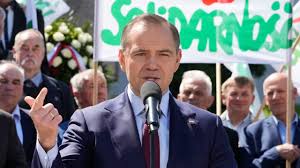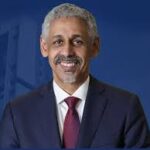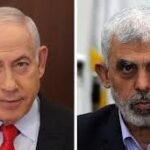Poland’s presidential race is headed for a tightly contested runoff between two candidates with sharply different visions for the country’s future: liberal, pro-European Warsaw Mayor Rafał Trzaskowski and nationalist conservative Karol Nawrocki. With polls nearly even ahead of Sunday’s final vote, the result remains uncertain—and the stakes are high, both domestically and internationally.
The election has attracted international attention, with former U.S. President Donald Trump and Hungarian Prime Minister Viktor Orbán endorsing Nawrocki. Trump recently hosted the candidate at the White House and dispatched Homeland Security Secretary Kristi Noem to a conservative summit in Poland, where she strongly backed Nawrocki and suggested that a victory for him could lead to enhanced U.S.-Polish military ties. Noem implied that a Trzaskowski win could endanger Poland’s security. Orbán echoed that support at a recent CPAC event in Budapest.
Trzaskowski’s supporters argue that his presidency would strengthen Poland’s ties with the European Union and improve the country’s international reputation, particularly amid ongoing war in Ukraine. Meanwhile, Nawrocki’s base believes that only conservative leadership can safeguard Polish sovereignty and traditional Christian values. They view Trump’s endorsement as a key security asset.
However, a pivotal figure in the race is Sławomir Mentzen, a far-right politician and co-leader of the Confederation party, who finished third in the first round of voting on May 18 with nearly 15% of the vote. Though eliminated, Mentzen and his supporters—many of them young, anti-establishment, and Eurosceptic—have become the most courted bloc in Polish politics.
Both Trzaskowski and Nawrocki have made appeals to Mentzen’s base. Each visited Torun, Mentzen’s hometown, to appear on his popular YouTube channel. Mentzen has gained traction online by mixing libertarian economics with nationalist and anti-EU rhetoric.
The far-right’s rising influence reflects broader trends in Polish and European politics. Piotr Buras, head of the European Council on Foreign Relations in Warsaw, notes that disillusionment with the current coalition government—particularly its struggles over liberal reforms like abortion rights—has driven many voters toward right-wing protest candidates.
According to exit polls, over 35% of voters aged 18–29 supported Mentzen in the first round, while nearly 20% backed left-wing candidate Adrian Zandberg. Additionally, extremist figure Grzegorz Braun, known for antisemitic rhetoric, captured over 6% of the vote.
“Right-wing protest candidates promise to bring back a lost, glorious past,” Buras said. “The left promises a better future, but for many, that seems unattainable.”
Following the first round, Mentzen issued an eight-point list of demands to both candidates. These included pledges such as no new taxes, protecting cash transactions, expanding gun rights, and opposing NATO membership for Ukraine.
Nawrocki, appearing on Mentzen’s show on June 22, agreed to all eight points—including the controversial stance on Ukraine, marking a break from his Law and Justice party’s long-held pro-Kyiv position.
Trzaskowski appeared two days later, expressing support for fiscal discipline but rejecting other items. He strongly defended LGBTQ+ rights and affirmed his support for Ukraine eventually joining NATO, calling it essential for Poland’s long-term security.
These interviews have dominated political discourse, even overshadowing the formal televised debate. One unusual moment from that debate saw Nawrocki placing something in his mouth—which he later said was a tobacco pouch—raising questions about his behavior under pressure.
After their online appearances, Trzaskowski and Mentzen shared a beer at Mentzen’s pub, joined by Foreign Minister Radek Sikorski, who posted a video with the caption: “For a Poland that unites, not divides.” The clip went viral, prompting speculation about whether it was a spontaneous moment or a calculated gesture.
However, the meeting drew criticism from some hard-right supporters, who accused Mentzen of fraternizing with the establishment he once opposed.
After days of speculation, Mentzen announced Wednesday that he would not endorse either candidate. “Vote as your conscience tells you,” he told his followers—leaving his base as the election’s key wildcard.
As Poland prepares for the runoff, the outcome may not only determine the country’s next leader, but also signal how far-right populism is shaping politics across Europe.
Nzubechukwu Eze









